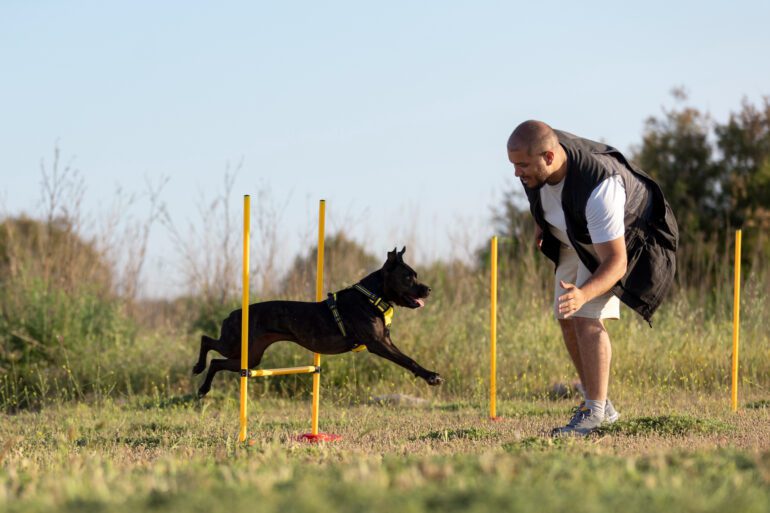Having a pet doesn't mean only providing food and letting them sleep. There are a lot more things that you can do with your pet. If you have a dog, it can be demanding, as it is a must to train your pet. Puppies continually pick up new skills, whether it comes from their surroundings, interacting with people and other animals or receiving formal training.
When you decide to train your dog, you might think about how you will do it.
We understand that this might be a new chapter for you. Therefore, you should learn the following tips and make your life easy with your beautiful pet.
1. Indulge in Talking
Before starting anything else, you should continuously discuss one critical thing with the dog.
You must always call the dog by their name, so the pet gets familiar with the name and your voice. Once you start calling the pet's name and they start responding to your call, that is your first win.
Half your job is done when your pet responds to you. For example, when you go out on a walk with your dog, using gifts for dog walkers, you can start training the dog for different activities. Communicating with it will make everything easy for you.
2. Start With Giving Basic Orders
Start teaching your puppy fundamental instructions like sit, come and wait as soon as you can. Be patient and only train for 10 to 15 minutes at a time.
But ensuring you don't miss out on training days is essential. Consistency is important since pups can take a while to learn new skills.
Also, you must understand that you shouldn't burden the pet with many orders at once. Moreover, repeat the orders daily so the dog doesn't forget how to conduct the commands.
3. Make Your Dog Bite Restraint
Some things come naturally, and biting is one thing that is directly associated with dogs. Also, puppies' bites can be painful because of their little, sharp teeth. Try some of these training suggestions to deter this habit quickly.
Your puppy will learn bite inhibition from another dog if you yell when they bite you, to let them know they have wounded you. Then use a chew or toy to redirect them. You can also get up and leave the area if your puppy bites while you're playing with them, to show them that misbehavior results in playtime being canceled.
4. Include Crate Instruction
The majority of trainers advise crate training to keep your puppy out of mischief or mishaps while you're gone.
All owners should teach their puppies in crates. Crating produces a behaviorally healthier puppy that is at ease being left alone, easier to potty train, easier to manage around guests, better suited to handle future boarding and overnight stays at the vet and better suited to handle travel.
It would be best to begin early. Crating will be your puppy's normal if you begin on Day One. Start by giving your puppy all their meals while securely fastened in their box. As soon as supper is finished, let them out. After that, gradually increase the time they spend inside the crate.
5. Increase the Agility of Your Pet
If your pet is a swift mover, that's great!
But have you checked your pet's agility while putting some hurdles in its path?
If not, then try to make some artificial hurdles, but ensure that you start with some easy things and gradually increase the difficulty.
It will improve your dog's instincts and help them become more maneuverable when in unwanted situations.
Compared to dogs, cats are more agile and show more flexibility. But such training can make dogs move greatly and increase their stamina.
6. Practice Some Alone Time
It is not possible for you to carry or take your pet everywhere you go.
There will be some situations where the pet must be alone in the house. Therefore, you must teach your dog to spend time alone.
To make it easy, have some practice sessions and make it a point to get everyone outside, even if it's just for a quick drive or stroll around the block. Also, if you make a big deal out of your dog when you get back, there are no issues.
Furthermore, you can also conduct such training by placing your pet in a separate room for a period of time. Such tactics become very useful and the pet learns quickly.
Conclusion
Puppy training takes a lot of dedication. So when you decide to train your dog, you should budget at least 20 minutes daily for training for the next three years.
Then, when your pet is fully matured, all your training work will have paid off and you will have a well-behaved pet and a new best friend.


